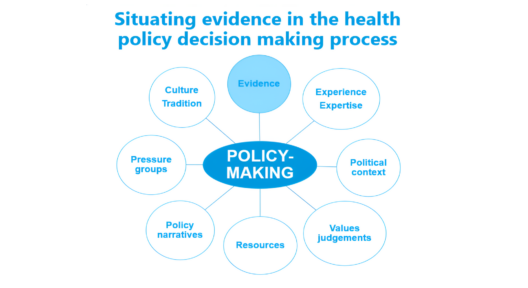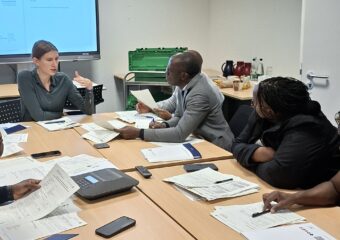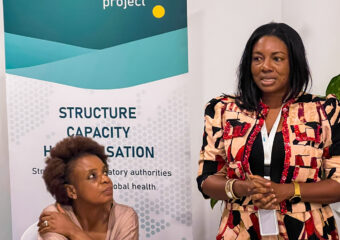Partnership to Drive One Health Policy with Evidence
The Friedrich-Loeffler-Institut and World Health Organization’s Evidence-informed Policy Network Join Forces to Drive One Health Policy with Evidence-Informed Approaches

Recent global challenges such as the SARS-COVID-19 pandemic and the climate crisis have underscored the intricate connections between human, animal and ecosystem health, as well as the need to leverage evidence in decision-making processes. As we look to the future, evidence-informed policy-making will play a pivotal role in shaping the success of health interventions worldwide. Effective policy-making requires a deep understanding of specific contextual issues within each country, coupled with access to the latest research and evidence.
Recognizing this need, the World Health Organization’s (WHO) Evidence-informed Policy Network (EVIPNet) strives to bring together leading researchers, policy-makers and experts to tackle the pressing health systems issues, to inform policy decision-making, and to collaborate on evidence-informed solutions. The Friedrich-Loeffler-Institut (FLI), the Federal Research Institute for Animal Health in Germany, addresses animal health and welfare through the prevention, diagnosis, and control of animal diseases and zoonoses. Additionally, the FLI is a WHO Collaborating Centre on zoonotic diseases, and engages with international committees and working groups on One Health to tackle health issues at the human, animal and ecosystem interface globally.
The Institute of International Animal Health/One Health at the FLI and the WHO’s Evidence to Policy and Impact Unit in the Research for Health Department have launched a project called Evidence-Informed Policy Approaches for One Health (OH-EVI) covering the period 2023 – 2025, which aligns with the Global One Health Joint Plan of Action and supports the development of related national implementation plans to promote the systematic and transparent use of evidence in One Health decision-making. The project focuses on strengthening national knowledge translation capacities, emphasizing a bottom-up, participatory, and multisectoral strategy to foster evidence-informed decision making in One Health. The partnership will see EVIPNet and FLI working together with selected countries in the WHO African and European Regions to synthesize the best available evidence on high-priority One Health topics and facilitate stakeholder dialogues to advance their respective national agenda.
Since the third quarter of 2023, the core team have started work in earnest, drawing up strategies and drafted a workplan to enhance attainment of the project goals. The team has conducted a mapping of the relevant individual and institutional stakeholders in potential partner countries. The team also embarked on a targeted outreach to some key stakeholders including individuals and institutional representatives to gauge their interest to collaborate on the project. So far, the team has had discussions with more than twenty (20) individuals and institutional representatives working within the One Health and/or evidence synthesis and knowledge translation sectors in potential partner countries to gain a deeper insight into the existence and operations of relevant institutions, and identify potential areas of collaboration. After this initial broad consultation and engagements with key stakeholders, the team expects to finalize the selection of three partner countries in the next few months. Subsequently, they aim to secure the official approval of the relevant authorities that will pave the way for the constitution of the local country teams for the next phase of project implementation.
Date: December 2023



